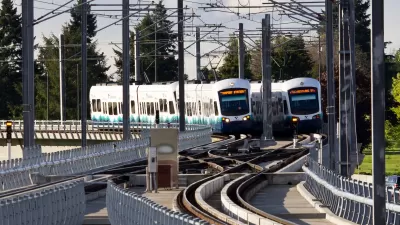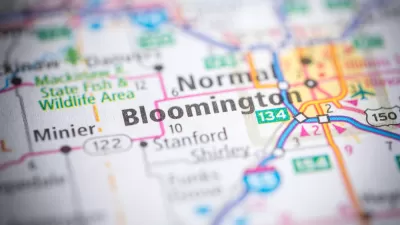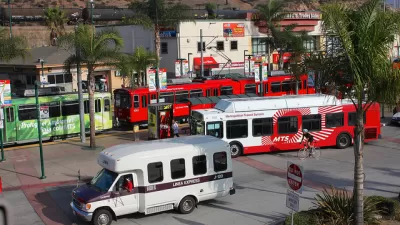Many high school and grade school students in Seattle have been riding the city's Metro for free during the school year, now to encourage ridership during the summer, the city has been offering steep discounts for riders between 6-18 years old.
A pilot program in Seattle cut Metro fares for youth fares over the summer and the transit system saw big ridership gains. "Riders from ages 6 to 18 could hop on Metro for 50 cents and light rail for $1 rather than the usual $1.50 youth fare," Josh Cohen reports for Next City. Compared to the previous summer, the system saw significant ridership increases across all its transit modes, "Metro bus youth ridership jumped 35 percent over the previous summer for a total of 376,000 boardings. Light-rail ridership increased 42 percent," Cohen reports.
Council members who supported this program hope its success in generating additional ridership will mean that the pilot becomes permanent. The increased youth ridership has been part of a wider growth story for Seattle public transit over the past year.
FULL STORY: Seattle Transit Gets Ridership Bump From Reduced Youth Fare

Planetizen Federal Action Tracker
A weekly monitor of how Trump’s orders and actions are impacting planners and planning in America.

DARTSpace Platform Streamlines Dallas TOD Application Process
The Dallas transit agency hopes a shorter permitting timeline will boost transit-oriented development around rail stations.

Congressman Proposes Bill to Rename DC Metro “Trump Train”
The Make Autorail Great Again Act would withhold federal funding to the system until the Washington Metropolitan Area Transit Authority (WMATA), rebrands as the Washington Metropolitan Authority for Greater Access (WMAGA).

Supreme Court Ruling in Pipeline Case Guts Federal Environmental Law
The decision limits the scope of a federal law that mandates extensive environmental impact reviews of energy, infrastructure, and transportation projects.

Texas State Bills to Defund Dallas Transit Die
DART would have seen a 30% service cut, $230M annual losses had the bills survived.

Bikeshare for the Win: Team Pedals to London Cricket Match, Beats Rivals Stuck in Traffic
While their opponents sat in gridlock, England's national cricket team hopped Lime bikes, riding to a 3-0 victory.
Urban Design for Planners 1: Software Tools
This six-course series explores essential urban design concepts using open source software and equips planners with the tools they need to participate fully in the urban design process.
Planning for Universal Design
Learn the tools for implementing Universal Design in planning regulations.
City of Mt Shasta
City of Camden Redevelopment Agency
City of Astoria
Transportation Research & Education Center (TREC) at Portland State University
US High Speed Rail Association
City of Camden Redevelopment Agency
Municipality of Princeton (NJ)





























